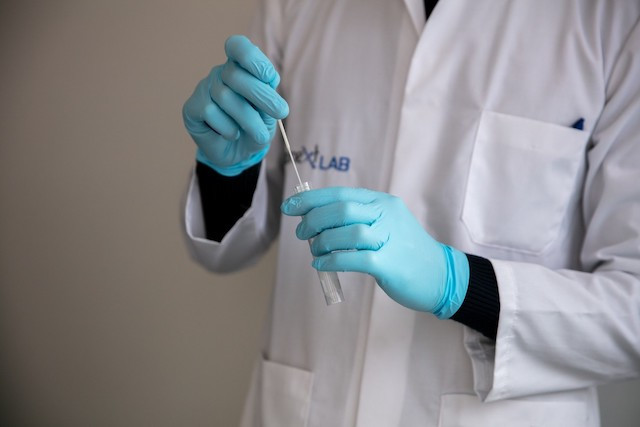With the coming into force of the CovidCheck, large-scale testing (LST) will be converted into a first-come, first-served system for people who are not yet fully vaccinated, the government announced last week.
But this has angered Bionext, a laboratory that lost out on the lucrative contract to participate in the testing scheme that launched last year.
“We can only support the government's initiative to offer the population the possibility of carrying out covid-19 tests free of charge to facilitate the movement of people both nationally and within the framework of their travel,” said Bionext director Jean-Luc Dourson in an open letter, “but why limit the performance of these tests to only one medical laboratory, selected arbitrarily and on obscure and flawed bases at the start of LST?”
The government last year had made it mandatory for laboratories competing in the large-scale testing call for tender to use the Fast Track Diagnostics kit. Only Laboratoires Réunis used compatible technology. Bionext and competitor Ketterthill relied on other testing material and addressed an open letter to the health ministry in May 2020 to complain about the criteria.
With large-scale testing becoming a first-come, first-served model--instead of being invitation-based--laboratories like Bionext and Ketterthill risk losing out on business, as holidaymakers or people needing a test for other reasons can simply schedule a free appointment rather than pay for a trip to the laboratory.
“This system--illegally subsidised by the state at a very high cost and which in addition benefits from constant publicity on the part of the state--competes unfairly with other regularly established laboratories,” Dourson said.
The director submitted a copy of the letter to the Court of Auditors and the competition council.
The change in strategy for large-scale testing no longer matches the contract initially awarded, he said, arguing that there is no legal basis for the government to make these changes.
The first phase of large-scale testing, from May to July 2020, cost €39.5m, while the second phase, from mid-September 2020 to mid-January 2021, cost €60.7m. The third phase, currently ongoing, could cost up to €64.2m.
Lawmakers in May seized Luxembourg’s Court of Auditors to carry out a review of spending on the initiative. The Court of Auditors is a financial watchdog, which parliament can call on to review of how the government is spending taxpayer money.
Members of the budget control committee said they would develop a list of questions that the court should investigate. This has not yet been made public.
Bionext has called on the government to include all laboratories carrying out covid-19 PCR and certified rapid antigen tests to take part in the free large-scale testing scheme. Dourson threatened legal action should the violation of contracts be confirmed.
